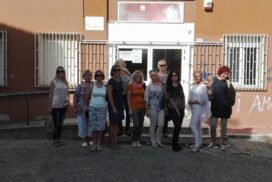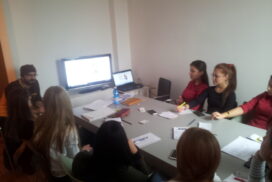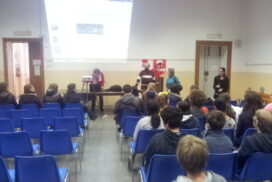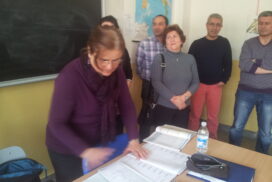Successful Educators - How to teach Respect
Description of the course:
Teachers today face quickly-changing expectations and need a broad and sophisticated set of competences with an ability to adapt to different learning environments in order to maintain their high quality teaching. To respond to the changing demands teachers need good support and opportunities for Continuing Professional Development. For this reason Giovani per l’Europa offers a course on: How to create a successful student in high schools. The course aims to teach effective methods to shape a successful person, who is the one who teaches people to enhance their skills. The course of “How to teach respect, love, help, self-confidence, empathy and peace to the student”, will develop into a series of lessons acts to enhance the methods of communication of the participant, and enhancing working capacity of the participant. The ultimate goal of the course is to teach how to value the students, in order to enable them to become adults respectful and loving towards others. Teachers must help each student attain their full potential.
Objectives
To give participants an adequate knowledge of:
- Train participants in how to direct students toward a world of peace
- Create strategies on how to deal with and eliminate violent or aggressive behaviour.
- Train participants in how to direct students towards development of their empathy and love
- Identify limiting and negative beliefs and transform them into positive and supporting ones – Analyse bullying, aggressive behaviour and violence, both physical and verbal.
- The best way to teach respect towards others
- Solve and reduce stress levels and develop the necessary abilities to manage emotions
Methodology: In the framework of Erasmus Plus Programme, we are going to develop our courses based in both formal and informal education methodologies. We’ll start with an introduction of the new methodology and also with a theoretical approach. In order to stimulate the active participation of participants we will use dynamic activities, like: study cases; discussions in the classroom with directors of private institutes; role-plays; guidelines, technical visits , training session with volunteers coming from the SVE that took place in Africa . Coursework will contain a mix of theoretical and practical knowledge. They will practice the necessary skills in order to be able to effectively use their own knowledge learned with their own students.
Programme
1st Day: Meeting of participants and tutors, transport to the accommodation and room allocation. Welcome Day and presentation of the agenda for the upcoming days including information about Italian culture and Erasmus + and info about the Hosting Organization and the city.
2nd Day: Participant Presentations. Expectations and needs for the course
- Discussion of general objectives of the course
- Introduction to Energy Psychology and empathy
- How these energy and empathy tools can be used in relation to a teaching environment
- Instruction and initial practice of basic techniques
- Brainstorming
3rd Day: In-depth instruction of the techniques.
- Set-up phrases and looking at changing aspects
- Psychological Reversal – its effects and how to overcome it
- Identifying and changing limiting beliefs
- Practical exercises in pairs to integrate learning
- Discussion and comments
4th Day: First Lesson: with a child psychologist, during the lesson she will explain new methods to guide the child the respect towards others. What behaviours are correct, and what behaviours should be corrected .Discussion and question time.
5th Day: Visit a primary school, time for discussion with experts, specialized in teaching the main human values to the children. We participate together in a demonstrative lesson. Evaluation of the Training Course. Certificate Ceremony and overall evaluation meeting with the host organization and the beneficiaries.
6th Day: Free time and cultural activities.
7th Day: Preparing for departure.
If you need more details contact us by email: info@giovaniperleuropa.org




